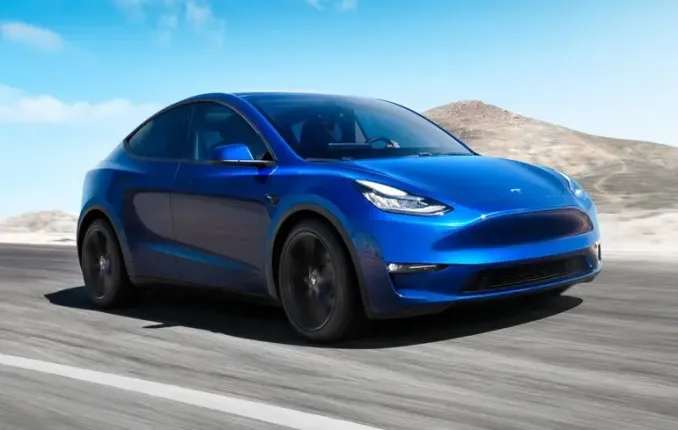Tesla has completed the world’s first autonomous car delivery – the self-driving delivery of an electric car from the factory to the customer

Elon Musk said that a Tesla Model Y autonomously drove from a factory near Austin to a customer's home, setting a new record in the field of autonomous technology and demonstrating the future of completely driverless driving. This is a significant step for the American automaker, as the company is currently trying to prove its unique capabilities in real-world conditions, and this case is the first in its history of autonomous delivery to a customer without the presence of a driver. According to Tesla CEO Elon Musk, the Model Y car drove itself through city streets and highways, completing a complex route from the factory near Austin to the customer's private home - without any involvement of a driver or remote control operator. At the same time, in a publication on the X platform (formerly Twitter), Musk added that the filming of this historic moment will be made public in the near future. It should be noted that the message did not publish photos or videos, but Tesla’s head of artificial intelligence and autopilot, Ashok Eluswamy, confirmed that the electric car reached a speed of 72 miles per hour (about 115 km/h) during the move. This event occurred on a day earlier than the official scheduled date — June 28, which is special for Musk, as it is his birthday, he turns 54. It was on this day that the company confirmed its ability to apply autonomous driving technologies to customer deliveries in practice, which opens a new era in the field of logistics and electric vehicle service. Tesla’s world-first autonomous delivery emphasizes Musk’s strategic focus on artificial intelligence and robotics as key areas of the company’s development. Earlier, on June 22, Tesla announced the launch of a robotaxi service, limited to testing among investors and marketing influencers, which allows you to test the unmanned mode in a specific area of Austin. Musk last year announced the exciting prospect of mass-market rollouts of robo-taxis and humanoid robots to solve mobility and automation problems. However, while these important innovations are attracting attention, Tesla’s sales remain sluggish in key markets — North America and Europe. In addition to economic difficulties, the company is also facing political accusations due to Musk’s involvement in the administration of former President Donald Trump. No less important, Tesla has recently resigned from several executives, which increases the level of uncertainty about the company’s future. Another aspect is that Tesla already demonstrated the capabilities of autonomous logistics back in April, when driverless cars independently rolled off the assembly line at logistics sites. This also underlines the company’s ambitions to advance in the field of contactless deliveries. At the same time, it remains unknown whether autonomous delivery will become the only element of the company’s long-term business model, as Tesla has not yet officially commented on this event. Despite all its achievements, Tesla may still be in the early stages of a breakthrough, on the path to large-scale commercialization of autonomous transportation technologies. It is important to consider that the potential for full autonomy and the expansion of driverless service will open the door to new business models and change the perception of the transportation industry as a whole. However, there are many tests and challenges ahead, because competitors are also not sitting idly by, and the speed of technological innovation will determine the future of the industry.

